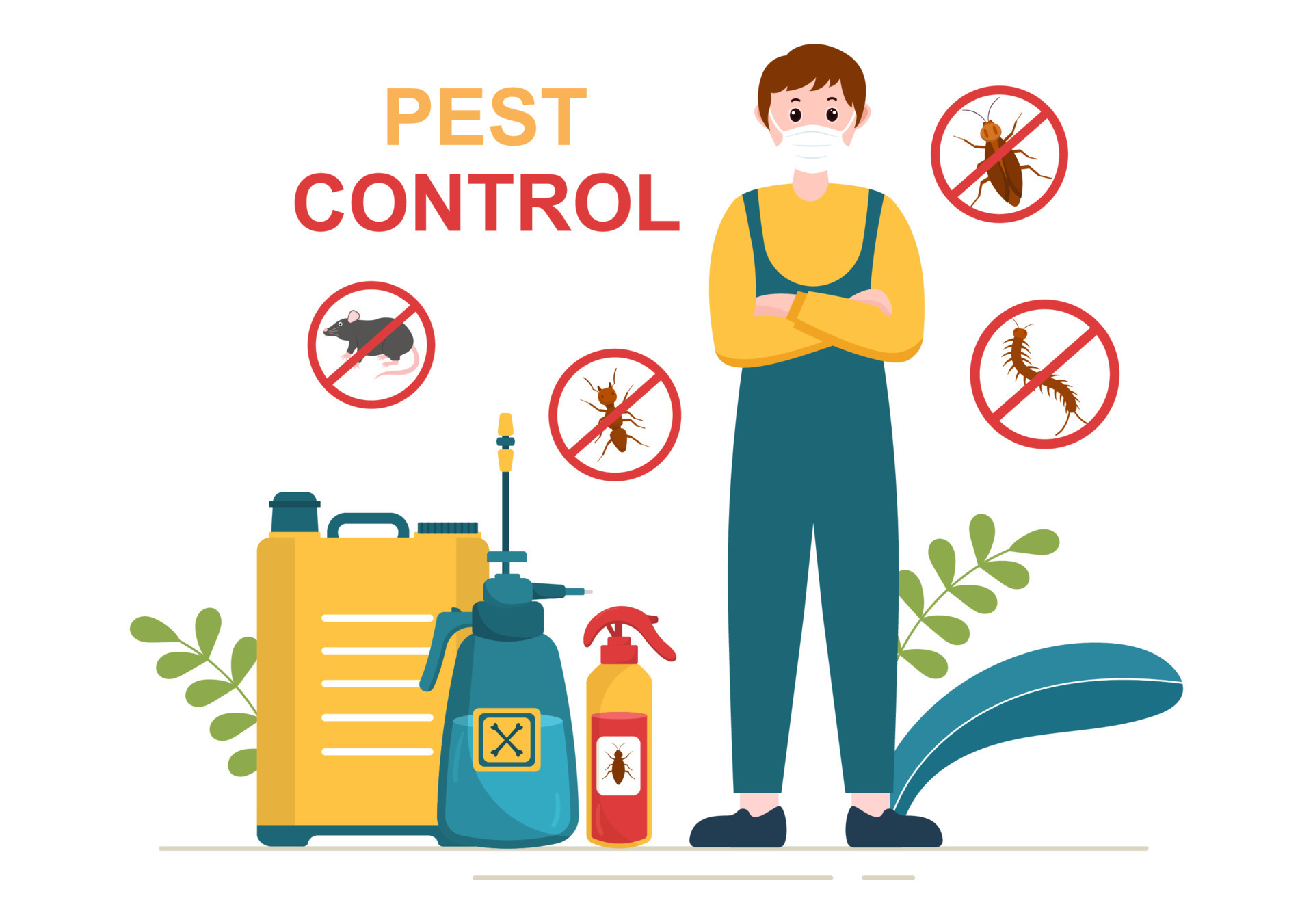Understanding Various Types of Pest Control Approaches and Their Performance
The monitoring of pests is a crucial element of keeping the wellness and stability of various environments, from farming fields to household homes. When taking into consideration parasite control approaches, it is vital to comprehend the diverse techniques readily available and their differing levels of efficiency. From chemical interventions to organic services, each approach provides unique benefits and limitations. By discovering the nuances of these pest control methods, an extensive understanding of how to attend to pest problems can be developed.
Chemical Parasite Control Methods
Chemical parasite control approaches play an essential function in efficiently taking care of and getting rid of pest problems in various atmospheres. These approaches involve using chemical materials to eliminate or discourage parasites such as weeds, insects, and rodents. Among the crucial benefits of chemical pest control is its ability to offer quick and targeted options to pest troubles. By using particular chemicals that are developed to target specific bugs, this approach can aid prevent damage to crops, structures, and human health.
Nevertheless, it is crucial to take into consideration the possible threats and disadvantages connected with chemical insect control methods. Overreliance on chemicals can lead to the development of pesticide resistance in bugs, making them more challenging to manage in the future. Furthermore, making use of particular chemicals can have harmful effects on non-target microorganisms, the atmosphere, and human health otherwise used correctly.

Organic Insect Control Approaches
Making use of natural killers and pathogens to handle pest populations effectively, biological parasite control techniques supply a sustainable and eco-friendly strategy to pest management. By presenting or advertising the task of microorganisms that naturally victimize or contaminate insects, such as ladybugs for aphid control or specific microorganisms for caterpillar infestations, organic control can aid maintain parasite populations at workable levels without the need for synthetic chemicals. This approach is especially helpful for chemical-free farming techniques, as it avoids the use of possibly unsafe substances while preserving crop wellness.

Physical Parasite Control Approaches
While organic pest control approaches concentrate on taking advantage of natural killers and virus, physical bug control techniques use mechanical and physical barriers to take care of parasite populaces. These techniques are typically thought about eco-friendly as they decrease making use of chemicals. Physical parasite control consists of techniques such as capturing, utilizing barriers like nets or displays, and literally removing parasites from the area.
Traps are generally utilized in physical bug control to record and remove insects like rats and pests. Another physical technique is the usage of obstacles such as internet, fencings, or displays to stop pests from going into or infesting certain areas.
Natural Parasite Control Approaches
Incorporating plant-based repellents and natural killers is a crucial strategy in carrying out efficient all-natural bug control approaches. By urging the visibility of helpful pests like ladybugs, lacewings, or predative mites, gardeners can naturally control pest populaces. These killers prey on usual yard bugs such as caterpillars, aphids, and termites, helping to keep a well balanced ecological community without the demand for chemical treatments.

Furthermore, implementing social methods such as plant rotation, friend planting, and maintaining correct plant health and wellness can likewise boost the efficiency of natural bug control methods. These strategies not only aid in avoiding bug infestations yet also advertise biodiversity and general ecosystem durability. By incorporating these natural strategies, individuals can properly handle bugs while lessening ecological impact.
Integrated Bug Management (IPM) Technique
Implementing an Integrated Insect Monitoring (IPM) approach is necessary for effectively controlling pest populations while lessening dependence on chemical pesticides. IPM is a lasting and extensive strategy that incorporates various insect control techniques to attain lasting solutions. This method concentrates on prevention, control, and monitoring to resolve parasite problems in an environmentally friendly fashion.
IPM integrates biological, cultural, physical, and mechanical methods with this website the restricted and critical use of chemicals when needed. By stressing aggressive measures such as habitat alteration, biological control, and exemption, IPM intends to lower bug populations and their influence on the ecological community. Routine surveillance is essential in IPM to assess pest degrees properly and establish one of the most suitable control methods.
Among the key advantages of IPM is its ability to minimize the threats related to extreme pesticide usage, such as environmental contamination and harm to non-target organisms. In addition, IPM advertises a more holistic technique to pest management by considering the total environment dynamics. Overall, the IPM strategy uses a lasting and effective solution for bug control while promoting ecological obligation.
Conclusion
Finally, comprehending the different kinds of insect control approaches and their efficiency is essential in properly handling pest invasions. Chemical, biological, physical, and all-natural pest control techniques each have their own benefits and constraints. Integrated Bug Management (IPM) technique, which incorporates different approaches for sustainable bug control, is increasingly being identified as a holistic and eco friendly option. By utilizing a combination of these companies, methods and people can effectively manage parasites while minimizing damage to the setting.
Chemical pest control methods play a critical role in successfully handling and removing pest problems in various environments.Making use of natural killers and virus to manage parasite populaces successfully, This Site biological insect control techniques provide a sustainable and environmentally friendly method to pest management. By introducing or advertising the task of microorganisms that naturally prey on or infect pests, such as ladybugs for aphid control or particular bacteria for caterpillar invasions, biological control can help keep bug populations at manageable degrees without the requirement for synthetic chemicals.While organic bug control methods concentrate on taking Resources advantage of natural predators and pathogens, physical bug control techniques utilize physical and mechanical barriers to manage pest populaces. Integrated Insect Administration (IPM) technique, which integrates various approaches for lasting insect control, is increasingly being recognized as a eco friendly and all natural option.
Comments on “Reputable Pest Control Auckland: Professional Elimination and Avoidance”